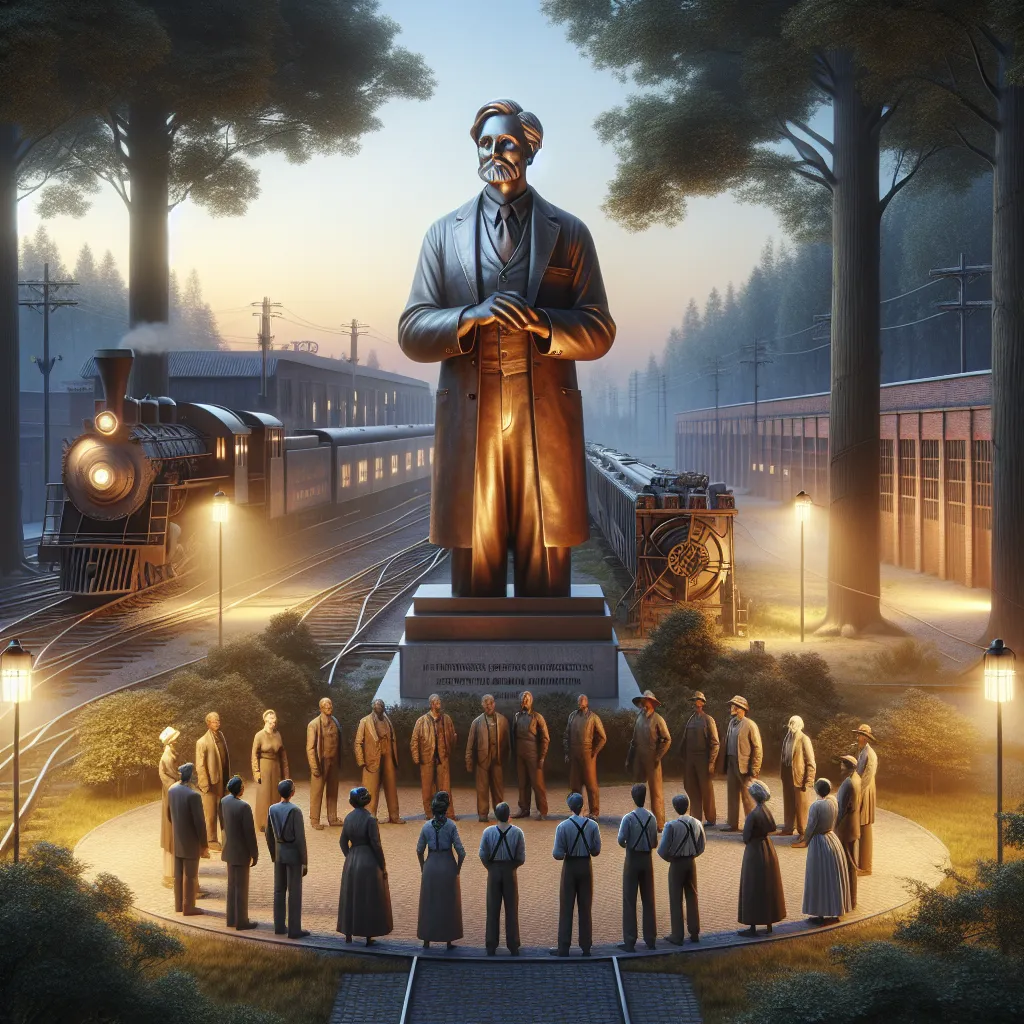If you’re reading this on a Friday, you’re probably breathing a sigh of relief as you head into the weekend. And for that, you can thank George Westinghouse, a titan of industry who played a major part in standardizing the two-day weekend that many of us take for granted.
George Westinghouse wasn’t just an influential inventor; he was a remarkable human being. Aside from creating pivotal advancements like the air brake and paving the way for alternating current, George’s character stood out. His gentle and kind nature earned him the respect and admiration of his employees. When he passed away, over 50,000 of his workers pooled their resources to fund a bronze monument in his honor. Unlike many industrial leaders of his time, who were often ruthless and exploitative, George treated his employees like family and prioritized societal progress over personal profit.
Born in New York on October 6, 1846, George was one of ten children. A curious and somewhat rebellious child, he preferred tinkering with machinery in his father’s shop to sitting in a classroom. His hands-on learning at the shop was invaluable, and by age fifteen, he enlisted to serve in the American Civil War, first in the cavalry and later in the navy. School never appealed much to George, so after a brief stint in college, he returned to his true passion: engineering.
At only nineteen, he secured his first patent for a rotary steam engine. Over the next 48 years, he amassed over 300 patents, acquiring them at a staggering rate of one every six weeks. Perhaps his most notable invention was the air brake, which revolutionized rail travel by allowing trains to stop more quickly and safely. Before Westinghouse’s air brake, trains required brake men to jump from car to car to apply the brakes manually—a dangerous and inefficient system. Implementing the air brake system significantly reduced the risk of accidents and saved countless lives.
Despite the obvious safety benefits of his air brake, many railroad operators initially balked at the $50 per wagon price tag. Even Cornelius Vanderbilt, a railroad magnate, dismissed it as unnecessary. It wasn’t until a tragic accident on one of Vanderbilt’s railroads that he realized the true value of Westinghouse’s invention. A public demonstration where the air brake narrowly averted a disaster helped sway public opinion, leading to its widespread adoption.
George’s innovative spirit didn’t wane with his air brake successes. He ventured into the natural gas industry, developing numerous patents that made natural gas safer and more accessible. His engineering prowess also extended to the burgeoning electrical field, where he competed fiercely with Thomas Edison. This competition, known as the “War of the Currents,” pitted Edison’s direct current (DC) system against Westinghouse’s alternating current (AC) system. Westinghouse, recognizing the limitations of DC, invested in AC technology and even recruited brilliant minds like Nikola Tesla to improve it.
The rivalry with Edison was intense and often underhanded. Edison went so far as to publicly electrocute animals with AC to demonstrate its supposed dangers, and even introduced the electric chair to malign Westinghouse. Despite such tactics, Westinghouse’s AC system eventually triumphed, lighting up the 1893 Chicago World’s Fair and later powering the Niagara Falls hydroelectric plant.
What set George apart wasn’t just his inventions but his integrity. Unlike many of his contemporaries, he treated his workforce with unprecedented respect, providing excellent working conditions and benefits. He even introduced the concept of a half-day off on Saturdays, setting the stage for the modern weekend.
George Westinghouse passed away in 1914, but his legacy endures. He changed the world not just with his inventions but by showcasing that success could be achieved with kindness and respect. His name is etched in history as much for his humanity as for his technological contributions. Today, we’re not just living in a world lit by his innovations; we’re living in a world shaped by his principles.






